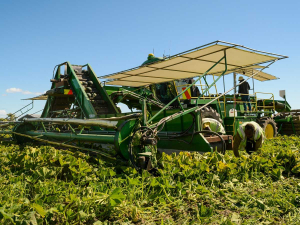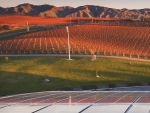A recent study shows that the shift to renewable energy sources, such as solar and wind power, has led to increased food prices and a decrease in agricultural output.
While the benefits of renewable energy are well-established, researchers are also examining the less discussed economic and social impacts of the move towards ‘green’ energy.
Professor Emilson Silva, director of the University of Auckland Energy Centre and co-author of the study notes that their findings show energy transition is not a neutral process and that it carries significant consequences.
"It directly impacts people's lives."
Silva and co-author Dr Luccas Attílio from the Federal University of Ouro Preto, Brazil, analysed data from 32 OECD countries, including New Zealand, from 2000 to 2021.
Their findings show that nations more advanced in their renewable energy drive face more substantial effects, with higher food prices and more pronounced reductions in agricultural production, compared to those that are slower to adopt renewable energy sources.
"This evidence highlights a critical challenge," says Silva. "As the push for renewable energy intensifies, so does the pressure on vulnerable populations who bear the brunt of rising food costs."
Silva and Attílio say governments need to consider income support programmes and adopt more nuanced approaches to the energy transition.
"While going ‘green' is essential for mitigating climate change, it must be balanced with strategies to protect those negatively impacted," says Silva.
The study, detailed in the working paper 'Does the energy transition affect food prices and agricultural production?', originated from Professor Silva's observations of farmers’ recent protests in Australia and other countries against higher production costs associated with climate policies and the growth of renewable energy production.
“Some of the farmers had been grappling with rising work-related costs and issues stemming from their land being repurposed for solar and wind installations. So, I wanted to look at the data to find out what effect the uptake of renewable energy sources was having.”











